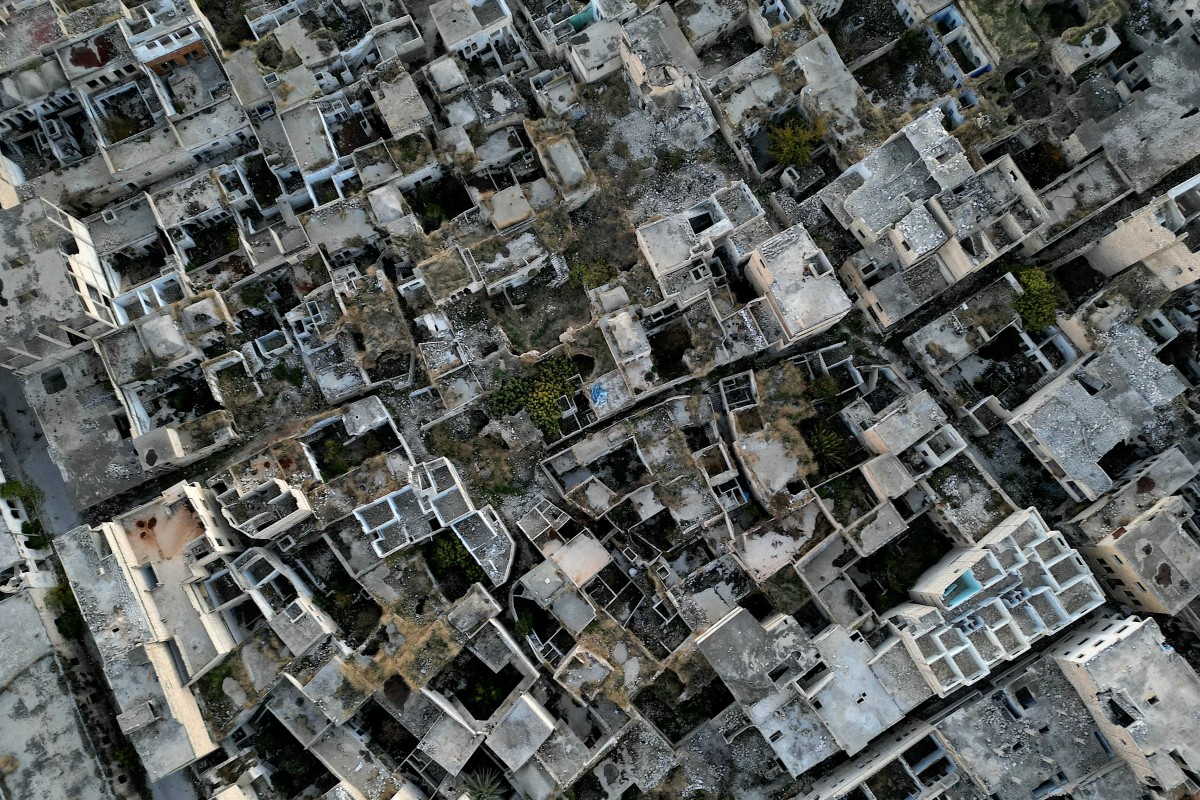
This aerial view shows destroyed buildings in Maaret al-Numan, in the northwestern Syrian Idlib province, on December 14, 2024. Agence France-Presse
DAMASCUS — Secretary of State Antony Blinken revealed Saturday that Washington had made contact with Syria’s victorious Hayat Tahrir al-Sham rebels, despite previously designating the group as terrorists.
He was speaking after talks with Arab, European and Turkish diplomats aimed at forging a common approach to the transition in Syria after HTS and other rebels toppled longtime strongman Bashar al-Assad last weekend.
Here are the main developments on Saturday:
US opens contact with HTS
“We’ve been in contact with HTS and with other parties,” Blinken told reporters after the talks on Syria in the Jordanian Red Sea resort of Aqaba.
He did not give details on how the contact took place but when asked if the United States reached out directly, he said: “Direct contact — yes.”
READ: US says in contact with new Syria rulers
The United States and other Western governments classify HTS as a terrorist group due to its roots in Al-Qaeda’s Syria branch
Few expect a quick move by the United States to lift the terrorist designation, especially with a political transition set next month following Donald Trump’s victory in the presidential election.
Blinken said that the easing of US sanctions on Syria imposed during Assad’s rule would depend on “sustained action” by the rebel-installed interim government to meet the expectations of the international community.
Main players agree common approach
In Aqaba, the participants in the talks with Blinken issued a joint statement calling for a Syrian-led transition to “produce an inclusive, non-sectarian and representative government formed through a transparent process”.
It also stressed “respect for human rights”, the importance of combating “terrorism and extremism” and demanded “all parties” cease hostilities in Syria.
HTS says Syria too exhausted for war
HTS leader Abu Mohammed al-Jolani criticized Israel for its incursion into southern Syria this week but said his country was too exhausted for fresh conflict.
READ: Negative impact of Syria’s regime change
“The Israelis have clearly crossed the disengagement line in Syria, which threatens a new unjustified escalation in the region,” he said, adding that despite the violation, “the general exhaustion in Syria after years of war and conflict does not allow us to enter new conflicts.”
Israeli troops entered the UN-patrolled buffer zone that separated Israeli and Syrian forces on the Golan Heights last weekend in a move the United Nations said violated the 1974 armistice agreement.
Hezbollah admits Syria supply lines cut
The leader of Iran-backed Hezbollah, Naim Qassem, acknowledged his Lebanese group can no longer be supplied militarily through Syria after Islamist-led rebels toppled its ally Assad.
“Hezbollah lost a military supply line via Syria,” Qassem said, adding that “the resistance must adapt to the circumstances”.
– Ultimatum to return state property –
The interim authorities gave a seven-day ultimatum for the return of stolen state property, warning: “Once that deadline has passed, anybody found guilty of concealing such property will be held liable and will face prosecution”.
Turkey reopens embassy
The Turkish flag was raised over the diplomatic mission in Damascus, 12 years after it closed early in Syria’s civil war.
Ankara has been a major player in Syria’s conflict, financing armed groups in the northwest and maintaining a working relationship with HTS.
UAE finds Islamist ties ‘worrying’
A senior UAE official said his government had concerns about the Islamist affiliation of the rebels who ousted Assad.
“The nature of the new forces, the affiliation with the (Muslim) Brotherhood, the affiliation with Al-Qaeda, I think these are all indicators that are quite worrying,” said Anwar Gargash, a presidential adviser in the United Arab Emirates.